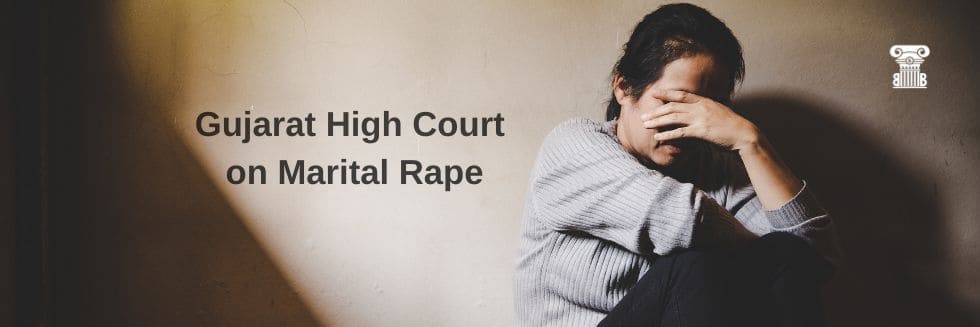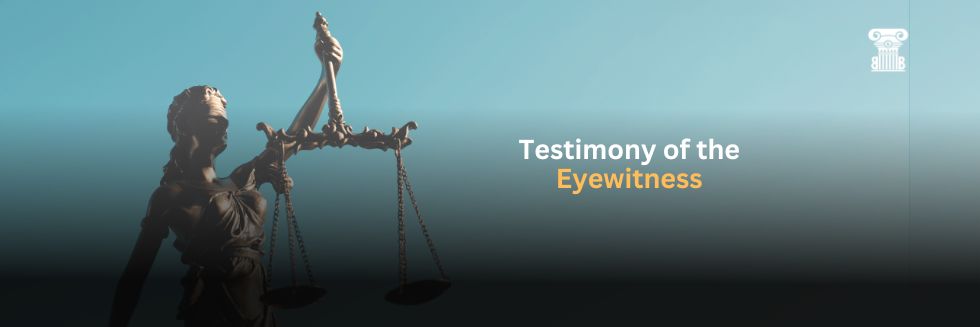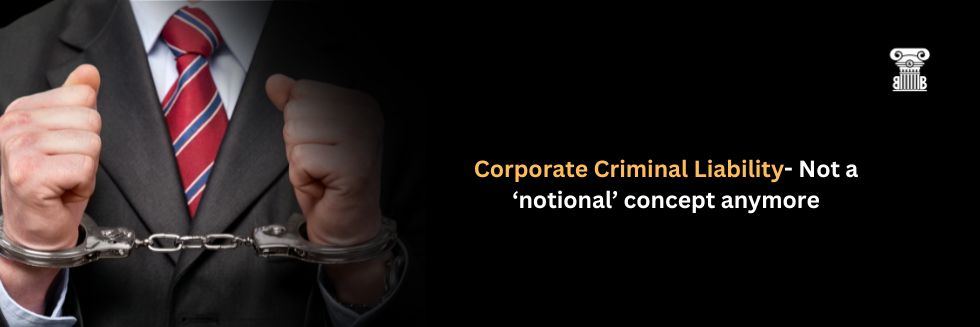Life and liberty are a sacred right under Article 21 of our sanctified Constitution, but the abuse by the police of the already immense powers bestowed on them by the Code of Criminal Procedure (Cr.P.C) passed by Parliament in 1973 has hindered it. The constant violation of personal freedom and constitutional rights by the government by their own retained rights for the apparent ‘protection of the public’ has been a widely debated and contentious topic. Media and court reports reveal instances of the police force’s violence of this kind; the same department tasked as our peacekeepers and protectors against evil.
Every person is born with certain fundamental rights to which he is entitled to, such as the right to live and the right to freedom, etc. Likewise, every citizen of every country has certain rights which, in the spirit of mutual brotherhood and conscience, are completely reasonable without discrimination, such as the right to life, the right to equality, the right to freedom, the right to education, the right to equality, the right to freedom of religion and many more. However, if a person is arrested/detained for committing a crime, the same rights of an individual may be surrendered. Although, as explained below, an arrested individual also has certain rights.
What is Arrest?
The Criminal Procedure Code of 1973, deals with the aspects of arrests, however, it did not define the word ‘Arrest.’ When a person is arrested, the person is taken into custody by a law-enforced authority and is asked to answer the charges against him. The arrested person is detained in such a way that no further crime is committed. At times, there is a restraint on the part of the legal authority, but sometimes the person on his own submits to the custody of the person making the arrest.
Chapter V (Sections 41 to 60) of the Criminal Procedure Code 1973 refers to the arrest of a person but does not define arrest anywhere. However, according to Farlex’s Legal Dictionary, ‘arrest’ means ‘seizure or forcible restraint; an exercise of the power to deprive a person of his or her liberty; taking or keeping a person in custody by a legal authority, in particular in response to a criminal charge.’
Who Can Arrest?
According to Section 41 (1) of the Code of Criminal Procedure, “Any police officer may, without a magistrate’s order and without a warrant, arrest any person who has committed a known offense, who is in possession of the stolen property, or who is a state offender, who obstructs the execution of his duty by a police officer, who attempts to escape from lawful custody, who is declared to be deserted from any of the Unio Armed Forces.” On the other hand, Section 42 authorizes a police officer to arrest a person for an offense that is non-cognizable, if the person to be arrested refuses to give his name and residence.
Section 43 gives the right to a private person such as you and me to arrest a person who, in his or her presence, commits an identifiable or non-bailable offense, or who is a convicted offender. Section 44 arrest by a magistrate pursuant to section 44 (1) of the Criminal Procedure Code, the Magistrate has been given the power to arrest an individual who has committed an offense in his presence and can also commit him to custody.
Section 46 of the Code of Criminal Procedure explains as to how arrests are made with or without a warrant. Similarly, Section 46(4) of the Act provides Special protection to females, which prohibits the arrest of women after sunset and before sunrise, except in exceptional circumstances, in which case the arrest maybe carried out by a woman police officer after having made a written report obtaining prior authorization from the first-class judicial magistrate concerned within whose local jurisdiction the offense is committed or the arrest is to be made.
What is Arraignment?
Arraignment is the procedure at the level of trial Court which formally initiates the trial process. It is the first official occasion at which the accused is given an opportunity to answer the accusation. Arraignment is held in open court and generally begins with a formal reading of the indictment or charge by which the accused is again formally advised of the charges against him. The suspect makes his first court appearance at the arraignment. During this, the judge reads the charges filed against the defendant in the complaint and the defendant chooses to plead ‘guilty,’ ‘not guilty’ or ‘no contest’ to those charges. The judge will also review the defendant’s bail and set dates for future proceedings.
What is a Preliminary Hearing?
A preliminary hearing is a proceeding before a criminal trial. Preliminary hearings are similar to indictments, but there are key differences between the proceedings. Some important distinctions are that they serve different purposes and that preliminary hearings provide more opportunities for counter-arguments. A preliminary hearing is best described as a ‘trial before the trial’ in which the judge decides, not whether the defendant is ‘guilty’ or ‘not guilty’, but whether there is sufficient evidence to force the defendant to stand trial. The prosecution, on the other hand, is where the defendant can file his pleas.
What are the various rights of an arrested person?
The legal system in India is established on the platform of “innocent till proven guilty”. An unlawful arrest of an individual can be a violation of Article 21 of the Indian Constitution that states, “no human shall be denied of his right to life and personal liberty except if established by law” which means that the process must be fair, clear, and not arbitrarily or oppressive.
Right to know the grounds of arrest
i) Article 22 (1) of the Indian Constitution provides that no police officer can arrest any person without informing the accused of the reason for his arrest or detention.
ii) Section 50 of the Criminal Procedure Code specifies that any police officer allowed detaining someone without a warrant must inform the accused person of the crime for which he or she is accused and other possible reasons for the detained.
iii) Section-50A of the Criminal Procedure Code makes it mandatory for the individual/police officer arresting a person to notify all of his family or even friends who may have an interest in the arrest.
iv) Section 55 of the Criminal Procedure Code notes that in cases where a police officer authorizes his junior to arrest a person without a warrant, the junior officer must inform the arrested person of the order provided by the delegation, including the offense and the reasons for the arrest.
In Joginder Singh vs. State of U.P. and D.K. Basu vs. State of West Bengal, rules have been enacted in Section 50-A making it obligatory on the part of the police officer not only to inform the friend or relative of the arrested person about his arrest, but also to make an entry in a register maintained by the police. Further, it is the obligation on part of the magistrate to know about the compliance of the police in this regard.
Right to remain silent
The ‘right to silence’ is a common law concept which suggests that it is not usually appropriate to invite or enable courts or tribunals of evidence to assume, by parties or prosecutors, that a defendant or convicted person is guilty merely because he has declined to answer questions put to him by the police or by the Court. “Of the origin of the right to silence, the Justice Malimath Committee writes that” it was simply the right to refuse to react and incriminate oneself in the absence of a proper accusation. “Not initially, the right to refuse to address a proper charge.” The presumption of the Justice Malimath Committee is that in tyrannical societies, where everyone may be unfairly prosecuted, the right to silence is only needed. It implies that there is no need for defense of the accused if an accusation is ‘proper’.
The right to remain silent is primarily linked to the court’s declaration and the confession made by a convicted person. Furthermore, the magistrate is responsible for perceiving whether any declaration or confession made by the convicted person was voluntary or was after the use of coercion and manipulation. Therefore, for that matter, the police or any other body is not empowered to force a convicted person to speak in court. Additionally, Article 20 (2) also reiterates that no person may be compelled to be a witness against himself, whether or not he is accused. The theory of self-incrimination is this act of revealing oneself. This principle was upheld in the case of Nandini Satpathy vs. P.L, wherein it was held that “No person may force any other person to furnish any statement or compel any question to be answered because the accused person has the right to remain silent during his interrogation.”
On the other hand, the fundamental principle of all procedural legislation is the right to a fair trial. In the historical sense of the fear of substituting the rule of men for the rule of law, the very prescription of the procedure and the evolution of procedural law must be understood. Any admission or confession made to a police officer by statute is not admissible. The right to silence is concerned mainly with a confession. The accused’s breaking of silence might be before a judge, but it should be voluntary and without any coercion or induction. The magistrate is expected to take several steps to guarantee the truthfulness and reliability of the facts he reported. By interpretation rather than law, the right to silence and the right against self-incrimination have been watered down very substantially.
Right to be produced before the Magistrate without any delay
Article 22 (2) of the Indian Constitution specifies that the police officer who has detained a person, must produce the arrested person before the Magistrate within 24 hours of the arrest if he fails to do so, rendering him liable for wrongful detention.
Section 55 of the CrPC states that if a police officer makes an arrest without a warrant, the person arrested must be brought without undue delay before the competent magistrate or the police officer in charge of the police station, depending on the circumstances of the arrest.
Section 76 of the CrPC notes that the person arrested must be brought before the courts within 24 hours of his arrest, excluding the time duration which is required for the journey from the place of arrest to the Magistrate Court.
Right to consult a Lawyer
According to Article 22(1) of the Constitution, no arrested person should be deprived of his right to choose and appoint his own lawyer to defend him in the court of law for whatever crime he may/may not have committed. The apex court held that failure to comply with this provision and not to notify the accused of this right would vitiate the trial.
On the other hand, while Section 41D of the Code of Criminal Procedure allows the prisoners to be able to consult with their lawyers even during their interrogation, section 303 of CrPC allows every alleged convict/ criminal, the right to be defended by a lawyer of his choice even if the criminal proceedings against him have already begun.
Right to free legal aid
In an attempt to achieve justice, the government formulated Article 39A to provide free legal assistance to people in need. This particular right was reaffirmed in the case of Khatri vs. Bihar, wherein the court ruled that “the state must provide the poverty-stricken accused person with free legal assistance” in the first instance of the production of the accused before the Magistrate in the court.
“The state is under a statutory obligation (implicit in Article 21) to provide free legal aid to an indigent convicted person and the constitutional duty to provide free legal aid occurs not only when the trial starts, but also when the convicted is brought before the judge for the first time, as well as from time to time when he is remanded. However, whether he is promptly and properly instructed by the court when he is brought before it, this fundamental right of an indigent accused to get free legal aid can prove to be illusory,” Supreme Court in Khatri vs. Bihar. Therefore, the Supreme Court has given all the magistrates and courts, an obligation to advise the indigent accused of his right to obtain free legal aid.
Moreover, even though the accused fails to apply for it himself, this right to free legal assistance for the accused cannot be denied. The same was strongly identified in Sukh Das vs. Arunachal Pradesh, where the Court held that even if the accused fails to apply for the same, “the right of a poverty-stricken accused person cannot be denied”
Similarly, Section 304 of the Code of Criminal Procedure provides a very significant right to every accused who is set to appear before a Sessions Court to appoint him a lawyer (totally free of cost) at the expense of the State. In a case where the accused has no sufficient means to appoint a lawyer for himself, then it the duty of the court to appoint him a representing lawyer.
Right to be released on bail
Section 50 (2) of the Code of Criminal Procedure provides that “where a police officer arrests without warrant, any person other than a person accused of a non- cognizable offense, he shall inform the person arrested that he is entitled to be released in bail that he may arrange for sureties on his.”
When a person is presented before the court for bail or release, the judge will consider the seriousness of the offense that he/she is charged with, any previous record, your interaction with the community, as well as the likelihood that you will appear before the court. The amount of bail shall be determined in accordance with a written schedule based on your fees. The law presumes that you are guilty of charges for the purpose of securing a bail or release.
Right to be Examined by the medical practitioner
Section 54 of the Code of Criminal Procedure states that if the arrested person alleges that the examination of his body leads to a fact that conflicts with the fact that he has committed an offense or that leads to the commission of an offense by some other person against his body, the court may, at the request of the accused, order the medical examination of that accused person, unless the court is satisfied that the accused person has committed an offense.
Right to a fair and just trial
Since no particular legislation has been stipulated in this respect, the legal provision about the right to a fair and just trial can be derived from the Indian Constitution as well as several Supreme Court and High Court judgments.
The right to equality before the law is guaranteed by the Constitution under Article 14. In order for a trial to be fair, the Code of Criminal Procedure also provides that it must be an open court trial. This clause is meant to ensure that convictions are not illegally produced. The trial may be held on camera in certain extraordinary cases. Every convicted person is entitled to be informed by the court before taking evidence that he is entitled to have his case heard by another court, and if the accused person moves such an application to transfer his case to another court, the same must be transferred. The accused, however, has no right to choose or decide by which other courts to prosecute the case.
Furthermore, the Indian Constitution also grants an accused the right to a speedy trial. Although this right is not expressly specified in the Constitution, it was interpreted by the Hon’ble Supreme Court of India in the judgment of Hussainara Khatoon. This decision demands that an investigation should be carried out “as expeditiously as possible” at trial. In all summons trials (cases in which the maximum sentence is two years in prison) after the accused has been arrested, the investigation must be concluded within six months or halted by order of the Magistrate, unless the Magistrate receives and agrees in writing, on the basis of his reasons, that there is ground for the investigation to be prolonged.
Additional rights available to an arrested person
- Section 55A of the Criminal Procedure Code provides that maintaining reasonable health care and safety of every arrested person will be the sole responsibility of the person who has the custody of the accused. This principle was established to protect the arrested person from cruel and inhuman treatment in the prison.
- As a principle of natural justice, Section 358 of the Criminal Procedure Code asserts that where the arrested person is provided with compensation when arrested unreasonably.
- Further, Section 41A of the Criminal Procedure Code asserts that the police official must furnish notice to the person who has supposedly committed a cognizable offense to appear before him at a specified time, date and location.
- Section 46 of the Criminal Procedure Code stipulates the mode of arrest of an accused person which includes submission to the custody by the accused, physically touching the body, or to a body. According to this provision, the police official must not cause the death of the accused person while trying to arrest the person except when the person to be arrested is accused of an offense which is punishable with death or life imprisonment or when the accused person is trying to unnecessarily resist his arrest by turning violent and aggressive or when the accused is trying to escape. Similarly, Section 49 of the Criminal Procedure Code submits that the police officials must not restrain or detain the accused without a legal arrest.
- Section 41B of the Criminal Procedure Code provides that every police officer authorized to conduct the investigation/ arrest must supply clear, visible, and valid badge where the name and designation of the police officer is clearly mentioned. Besides this, the police officer authorized to make an arrest must prepare a cash memo with complete details of the arrest like the date and time.
- The same document must have signatures of at least 1 family member or anyone honorable person of the locality of the accused. The arrested person has to countersign the cash memo.
- Section 41D entitles an arrested person to a right to have 1 friend or relative or any other person who he wants by his side during his arrest. The police must inform the person arrested about his right to inform someone immediately when the person is detained or put under custody.
The arrested person has the right to meet his lawyer while in prison and during interrogation. In addition to these, all the copies of the entire documentation must be sent across to the Magistrate for his record which must also include the arrest memo.
- Section 41C of the Criminal Procedure Code asserts that every arrest made by any police official must be informed to the District and the State headquarters within 12 hours of any arrest which also needs to be displayed on the conspicuous board.
When Can an Officer Conduct a Search?
The police must have a search warrant in order to conduct a search. The warrant for search shall be issued by a magistrate, a judge, or a court authorizing police officers to search a home, premises, or vehicle for the purpose of investigating possible criminal activity. Such a warrant specifies the location, date, and time of the search by law enforcement agencies. However, the law allows the police to search without a warrant in limited circumstances. For example, if a police officer has reasonable grounds to believe that a place needs to be searched without undue delay as something necessary can be found there as part of an investigation.
According to the provisions of the Criminal Procedure Code, a search warrant can be issued under specific circumstances. Under Section 93 of the Code of Criminal Procedure, a search warrant may be issued under the following circumstances:
- Where a court has reason to believe that a person to whom a summons or order under section 91 or a requisition under sub-section (1) of section 92 has been addressed will not produce the document as required by such summon.
- Where such document or thing is not known to the court to be in the possession of any person, or
- Where the court considers that a general search will serve the purpose of any inquiry, trial, or other proceedings under this code, it may issue a search warrant.
- Where the court specifies in the warrant the particular place or part to which only the search shall extend.
- Nothing contained in this section shall authorize any magistrate other than a district magistrate to grant a warrant to search for a document, parcel, or another thing in the custody of the postal services.
A warrant for the search of a place suspected to contain stolen property, a forged document can be issued under section 94.
However, in certain circumstances, a police officer does not need a search warrant to conduct a search as stated in section 165. These include:
- Whenever an officer in charge of a police station or a police officer making an investigation has reasonable grounds to believe that anything necessary for the purpose of an investigation into any offense which he is authorized to investigate may be found in any place and that thing cannot in his opinion be obtained without undue delay without a search, such officer may search for such thing in any place within the limits of such station.
- Police officer proceeding under subsection (1), shall if practicable, conduct the search in person.
- If a police officer is unable to conduct the search in person and there is no other person competent to make the search present at the time, he may, after recording in writing his reasons for so doing, require any officer subordinate to make the search and order him to search for such a thing in such a place.
- If a police officer remained outside the house while the search was being made inside by some subordinate officer, the search was not held to be illegal.
- Copies of any record made under subsection (1) shall be sent to the nearest magistrate empowered to take cognizance of the offense.
Guidelines laid down by the Supreme Court
Over the last two decades, the effort of the courts, and in particular of the Supreme Court, has been to circumscribe the vast discretionary power bestowed on police by law by enforcing several protections and controlling it by establishing numerous guidelines and subjecting several constraints to that power. The effort throughout was to stop its exploitation thus leaving it free to discharge the police functions assigned to it.
In Joginder Kumar vs. the State of U.P, the power of arrest and its exercise has been dealt with at length wherein it was observed that “The horizon of human rights is expanding. At the same time, the crime rate is also increasing. Of late, this court has been receiving complaints about violations of human rights because of indiscriminate arrests. How are we to strike a balance between the two? Further, the court observed that “no arrest can be made because it is lawful for the Police officer to do so. The existence of the power to arrest is one thing. The justification for the exercise of it is quite another. The Police Officer must be able to justify the arrest apart from his power to do so. Arrest and detention in police lock-up of a person can cause incalculable harm to the reputation and self-esteem of a person. No arrest should be made by Police Officer without a reasonable satisfaction reached after some investigation as to the genuineness and bona fides of a complaint and a reasonable belief both as to the person’s complicity and even so as to the need to effect an arrest.”
Further, in the case of Yoginder Singh vs. State of Punjab, the court had observed that for the execution of Article 21 as well as Article 22(1) it is imperative that:
- The arrested person has the right to inform his friend, relative, or any other person in his interest in his arrest.
- The police officer must inform the arrested person all his rights right after detainment/ arrest of the accused person.
- The entry of the arrest with complete details must be made in a diary which must include the name of the person who has been informed about the arrest.
In D.K. Basu vs. State of West Bengal, the frequent instances of police atrocities and custodial deaths have prompted the Supreme Court to have a review of its decisions like Joginder Kumar, Nilabati Behera etc. Therefore, the Apex Court issued the following requirements to be followed in all cases of arrest or detention till legal provisions are made in that behalf as preventive measures.
- The police personnel carrying out the arrest and handling the interrogation of the arrestee should bear accurate, visible and clear identification and name tags with their designations. The particulars of all such police personnel who handle interrogation of the arrestee must be recorded in a register.
- That the police officer carrying out the arrest of the arrestee shall prepare a memo of arrest at the time of arrest and such memo shall be attested by at least one witness, who may be either a member of the family of the arrestee or a respectable person of the locality from where the arrest is made. It shall also be countersigned by the arrestee and shall contain the time and date of arrest.
- A person who has been arrested or detained and is being held in custody in a police station or interrogation center or other lock-up shall be entitled to have one friend or relative or other person known to him or having an interest in his welfare being informed, as soon as practicable, that he has been arrested and is being detained at the particular place, unless the attesting witness of the memo of arrest is himself such a friend or a relative of the arrestee.
- The time, place of arrest, and venue of custody of an arrestee must be notified by the police where the next friend or relative of the arrestee lives outside the district or town through the Legal Aid Organization in the District and the police station of the area concerned telegraphically within a period of 8 to 12 hours after the arrest.
- The person arrested must be made aware of this right to have someone informed of his arrest or detention as soon as he is put under arrest or is detained.
- An entry must be made in the diary at the place of detention regarding the arrest of the person which shall also disclose the name of the next friend of the person who has been informed of the arrest and the names and particulars of the police officials in whose custody the arrestee is.
- The arrestee should, where he so requests, be also examined at the time of his arrest and major and minor injuries, if any, present on his/her body must be recorded at that time. The “Inspection Memo” must be signed both by the arrestee and the police officer affecting the arrest and its copy provided to the arrestee.
- The arrestee should be subjected to a medical examination by a trained doctor every 48 hours during his detention in custody, by a doctor in the panel of approved doctors appointed by Director, Health Services of the concerned State or Union Territory. Director, Health Services should prepare such a panel for all Tehsils and Districts as well.
- Copies of all the documents including the memo of arrest, referred to above, should be sent to illaqa Magistrate for his record.
- The arrestee may be permitted to meet his lawyer during interrogation, though not throughout the interrogation.
- A police control room should be provided at all Districts and State headquarters, where information regarding the arrest and the place of custody of the arrestee shall be communicated by the Officer causing the arrest, within 12 hours of effecting the arrest and at the police control room it should be displayed on a conspicuous notice board.
Further, the Court emphasized that failure to comply with the said requirements shall apart from rendering the concerned official liable for departmental action, also render him liable to be punished for contempt of Court and the proceedings for contempt of Court may be instituted in any High Court of the country, having territorial jurisdiction over the matter. The requirements are in addition to the constitutional and statutory safeguards and do not detract from various other directions given by the Courts from time to time in connection with the safeguarding of the rights and dignity of the arrestee.
In M.C. Abraham vs. State of Maharashtra, the Apex Court reiterated that arrests must be carried out very cautiously and in accordance with the correct procedure. In the above-mentioned circumstances, it is not mandatory for the police to make such arrests, but exceptions can be made if the police are able to explain the accused being likely to abscond or tamper with witnesses and/or evidence.
Conclusion
India faces a huge problem of illegal arrests as well as custodial deaths that are largely caused by illegal arrests. These problems undermine both the substance of Article 21 of the Indian Constitution and the fundamental human rights that are available to all under the Universal Declaration of Human Rights. The Code of Criminal Procedure 1973, provides for certain safeguards, but so far, the power of arrest given to the police has been misused. It is believed until today that the police use the authority to threaten people who have been arrested and extort money from them. There have been reports that the police have failed to inform the arrested people of the charges against them and have not provided them with adequate means of representation. It is therefore very important to bring about changes in the Criminal Justice Administration so that the State knows that its primary duty is to seize and reform the wrongdoer and not just to punish him.
This article is written by M Nikitha. The author can be contacted via email at nikitha@bnblegal.com
For more information and professional consultation regarding criminal matters, our expert criminal lawyers in Chandigarh can be contacted from Monday to Friday between 10:00 am to 6:00 pm and between 10:00 am to 2:00 pm on Saturdays.







